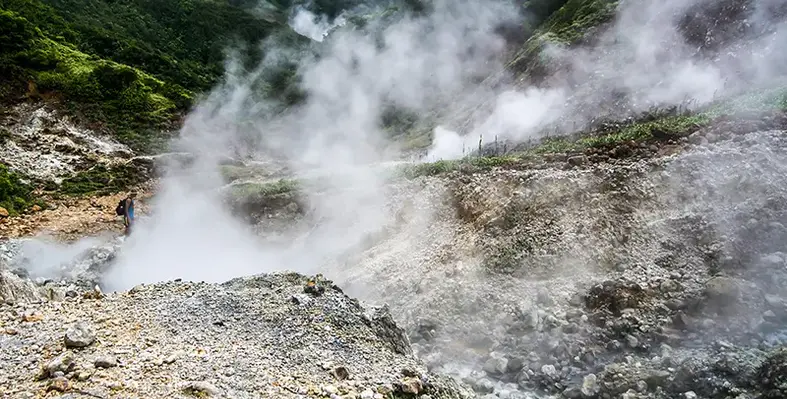 A new report by the Organisation of Eastern Caribbean States (OECS) Commission highlights the role geothermal energy can play in securing greater energy independence for the Eastern Caribbean region.
A new report by the Organisation of Eastern Caribbean States (OECS) Commission highlights the role geothermal energy can play in securing greater energy independence for the Eastern Caribbean region.
The 48-page document — Power Below The Surface: Harnessing Geothermal Energy in the OECS — charts the path toward sustainable energy and highlights various projects currently taking shape across the island states.
These include Dominica’s advanced 10 MW plant development scheduled for completion in December 2025, to emerging projects in four other member states, Grenada, Saint Kitts and Nevis, Saint Lucia and St Vincent and the Grenadines.
Judith Ephraim, programme director, sustainable energy at the OECS Commission, called it a “significant milestone” in the region’s journey toward energy security and sustainability.
She also said the document placed on record for the first time the journey towards geothermal energy development from the Caribbean Small Island Developing States (SIDS) context.
“Whilst many islands have good potential for geothermal energy, the unique nature of geothermal and the circumstances of SIDS makes the development of geothermal a worthwhile undertaking, one which needs strong commitment, strategy and partnerships,” she said.
“It is therefore important to understand the steps taken so far to build on the knowledge base for geothermal development on islands.”
The booklet makes a case for geothermal energy’s particular viability in the OECS.
One of the Eastern Caribbean’s unique advantages lies in its volcanic geology, with eight out of 11 member states having volcanic origins suitable for geothermal development.
The publication also addresses key aspects of geothermal development, including environmental benefits, economic advantages and various technological approaches to geothermal power generation.
Ephraim said that the document — developed with support from the Caribbean Development Bank, the European Union and the Inter-American Development Bank, with contributions by energy ministries from some of the region’s countries — also serves as an educational resource, as well a strategic blueprint for policymakers, investors and energy sector stakeholders.
“By harnessing the heat beneath our feet, we can transform both our energy landscape and economic trajectory, reducing our dependence on imported fossil fuels while providing stable, renewable power to our citizens.”
